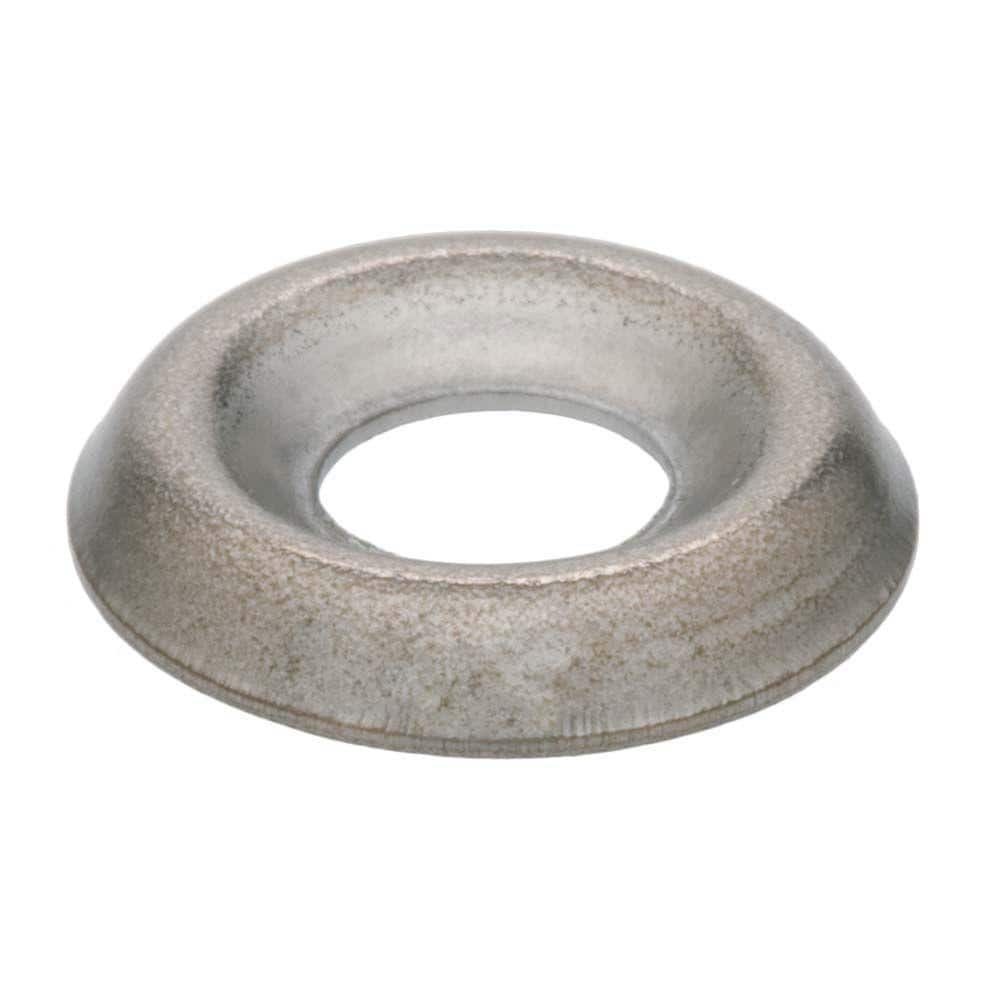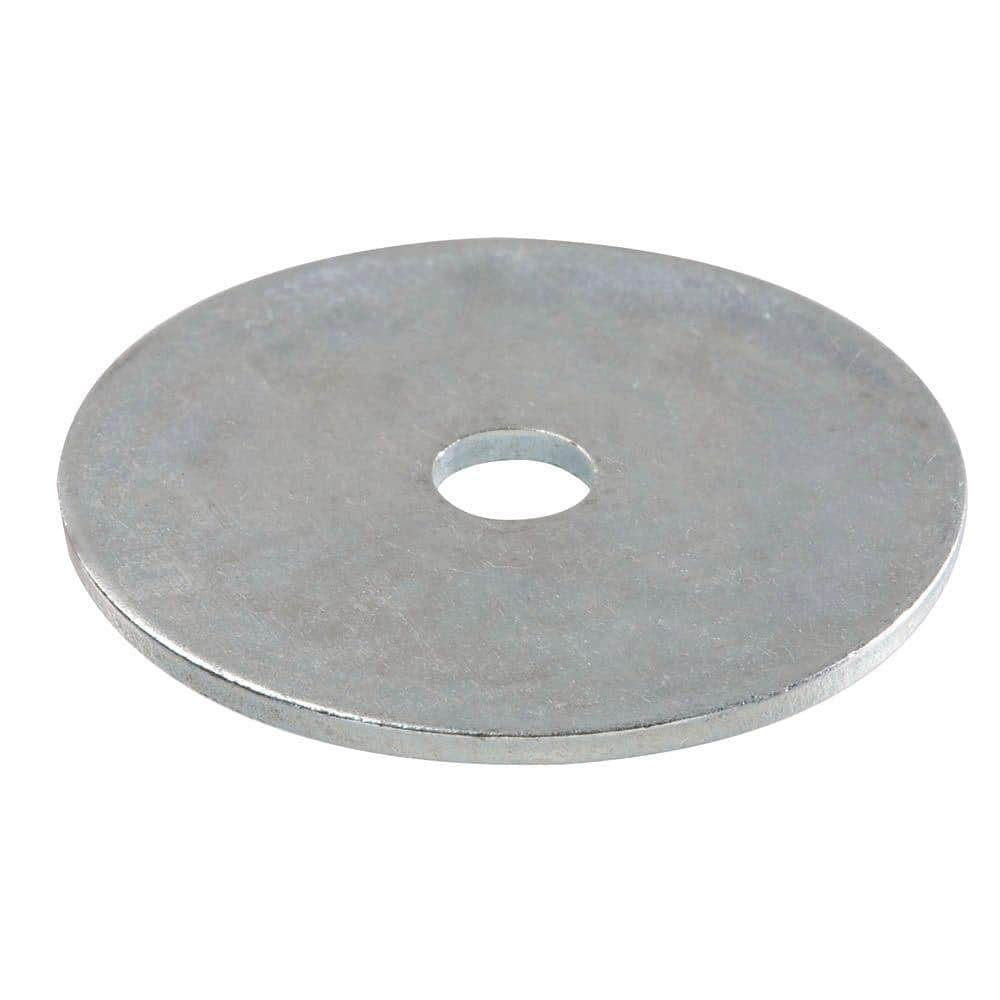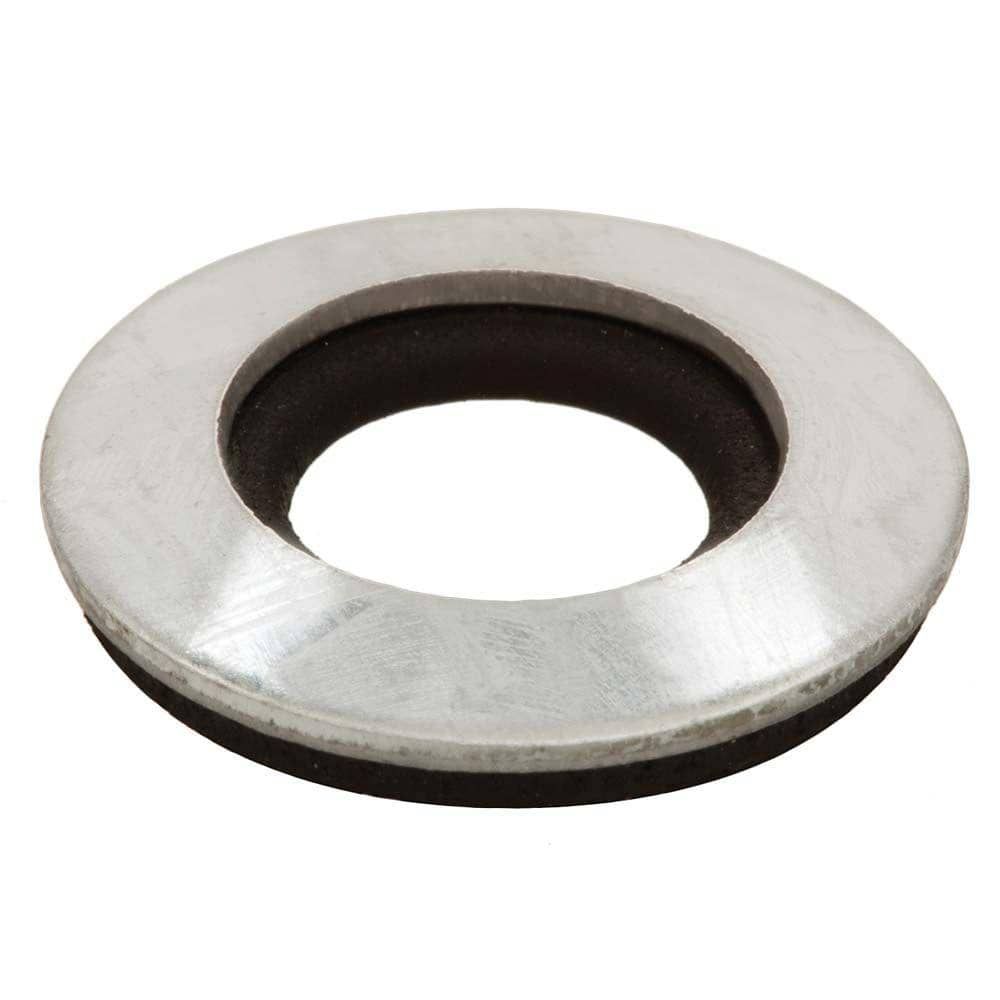Types of Washers

Last updated December 7, 2023
A washer is a circular piece of hardware that evenly distributes the force of a screw or nut. Washers can relieve friction and prevent corrosion or leakage. They can help maintain tension or serve as a spacer. This wide range of applications makes washer a necessity in most construction projects. However, choosing the right type of washer for a project can be more complicated than it seems. This guide will cover the types of washers and their recommended purposes.
Table of Contents
Washer Materials and Types
Plain Washers
Spring Washers
Lock Washers
Washer Materials and Types

Washers are made from a variety of materials. The most common is stainless steel. Stainless steel will not rust or corrode.
Other metal washers include aluminum, copper, brass and iron. Specialty washers include plastic washers, rubber washers, ceramic washers and phenolic washers.
The three main types of washers are plain washers, spring washers and lock washers. Specialized washers exist within these categories that serve unique purposes.
Tip: Washers (as well as nuts) are sized in both U.S. and metric measurements.
Plain Washers

Also called flat washers, plain washers are the most common type of washers. They
distribute pressure and protect the object to which the screw or nut is fastened.
If a hole is too big for the fastener, a plain washer can be used to correct the size difference.
- Also known as Type A plain washers. The flat washer is
what most people picture when thinking of a typical washer. They are circular and flat with a central hole to accommodate a bolt.
Flat washer come in varying thicknesses. - Application:
Used to distribute force or correct a hole size. Good for general use.
- Named for their common use on car fenders. Fender washers are flat washers with a small hole and comparatively large outside diameter.
- Application: Used to distribute
force over a large surface area, usually thin metal.
- A torque washer has a square hole and outer prongs that prevent its accompanying bolt from spinning
while a fastening a nut. - Application: Used with a carriage bolt for woodworking projects.
C-Washer:
- Resembles a flat washer, but it has a slot cut from the center hole to form a “C” shape.
- Application: Used any time a washer might need to be removed, adjusted or replaced without removing the fastener.
- Also known as a countersunk washer. A finishing washer has a sunken top designed to catch the fastener.
- Application: Creates a flush surface when secured with countersunk screws.
Spring Washers

Spring washers have
axial flexibility
that allows them to move with vibrations. Their flexibility keeps them from getting loose or coming unfastened due to those vibrations. They increase the elastic properties of a joint.
Belleville Washer:
- Sometimes called a conical spring washer. The Belleville washer
has beveled sides that support heavy force with small deflections. - Application: Used for projects that involve thermal expansion.
Crescent
Spring
Washer:
- Also called curved spring washers. Crescent washers look like flat washers that have been slightly curved to
exert light pressure and maintain flexibility. - Application: Used to absorb movement.
Dome
Spring
Washer:
- Dome
spring
washers look like
Belleville
washers but have rounded sides. - Application: Used wherever you
would use a crescent
spring
washer but also need to create a flatter surface.
Finger
Spring
Washer:
- Finger spring washers have three curved flanges.
- Application: Used for dampening vibrations and noise.
Wave Spring Washer:
- Wave spring washers are curved in two directions, creating a wave-like shape.
- Application: Used most often as cushions or spacers.
Lock Washers

Lock washers secure fasteners that might otherwise rotate or lose friction.
- Sometimes called helical washers. Split lock washers
are non-continuous rings that have each end bent slightly outward in opposite directions. Split lock washers flatten when they're secured. Each end digs into the mating surfaces. - Application: Used to lock a fastener into place.
- An internal tooth lock washer has several teeth on the inside diameter that bite into the fastener.
- Application: Used to lock shallow-headed fasteners into place and absorb shock and vibrations.
- An internal tooth lock washer has several teeth on the inside diameter that bite into the fastener.
- Application: Used to lock shallow-headed fasteners into place
and absorb shock and vibrations.
Different types of washers are suitable for different jobs. As you choose between them, consider the washer's applications and the type of nut or other fastener that will be used.
Need help identifying an item? Find products fast with image search in The Home Depot Mobile App. Snap a picture of an item you like, and we'll show you similar products.






























